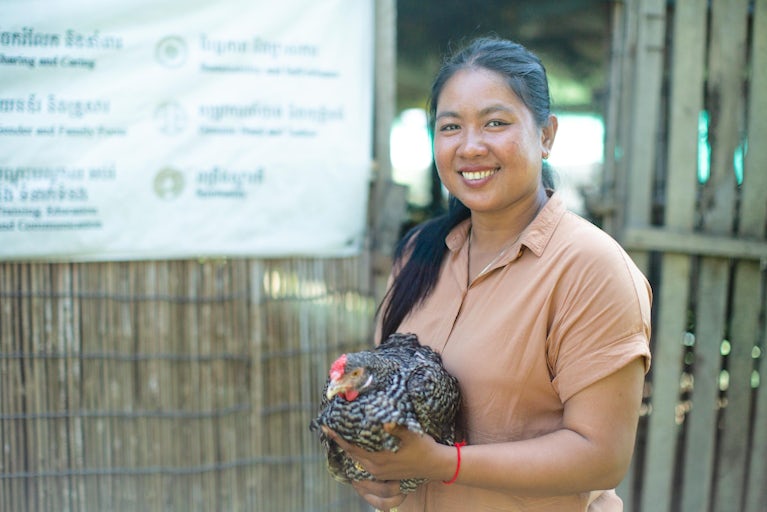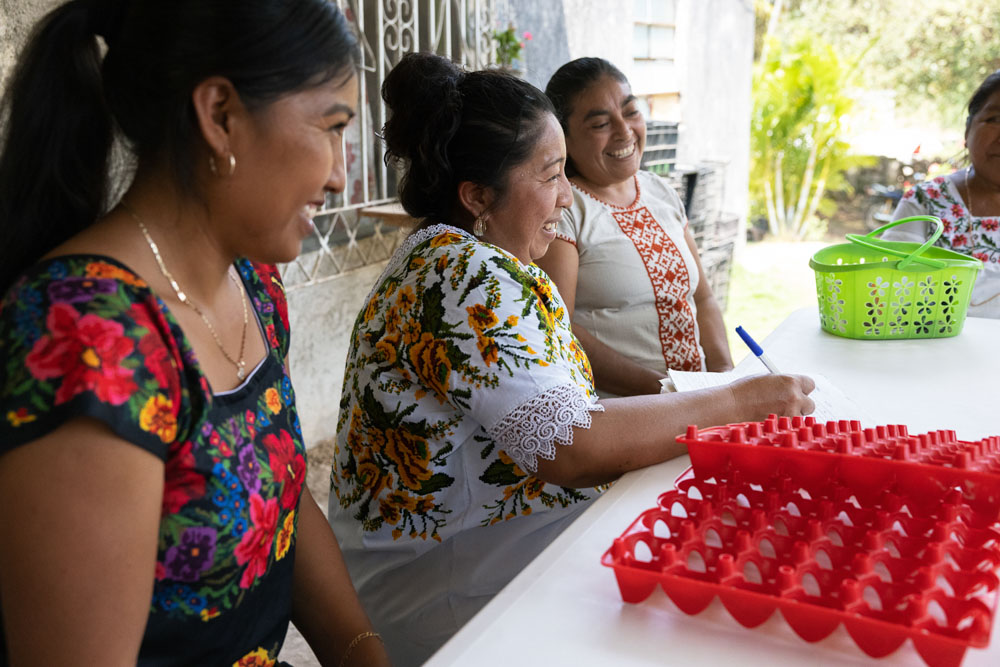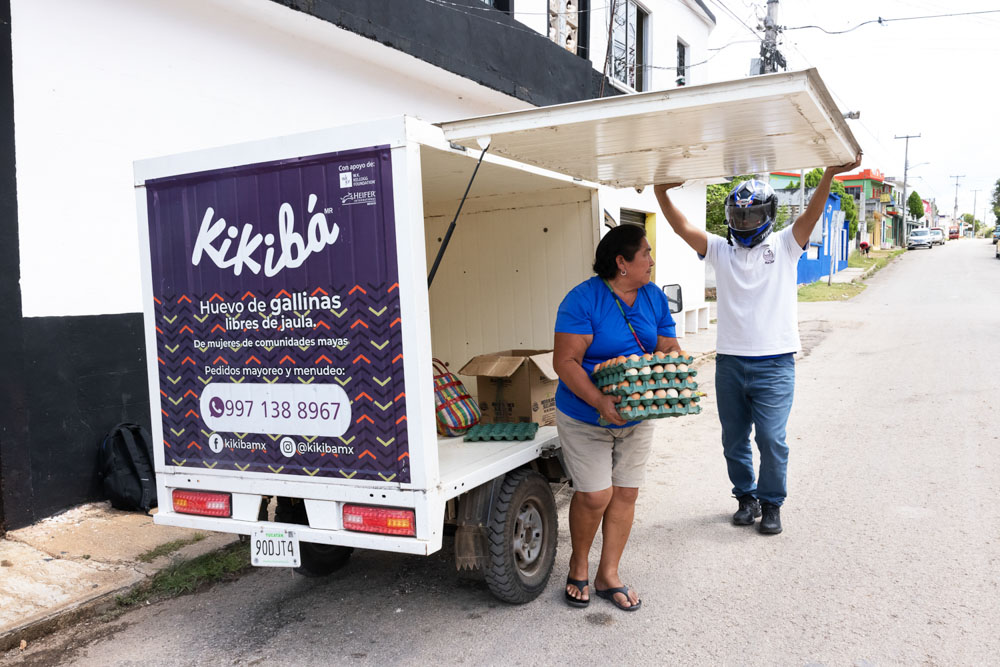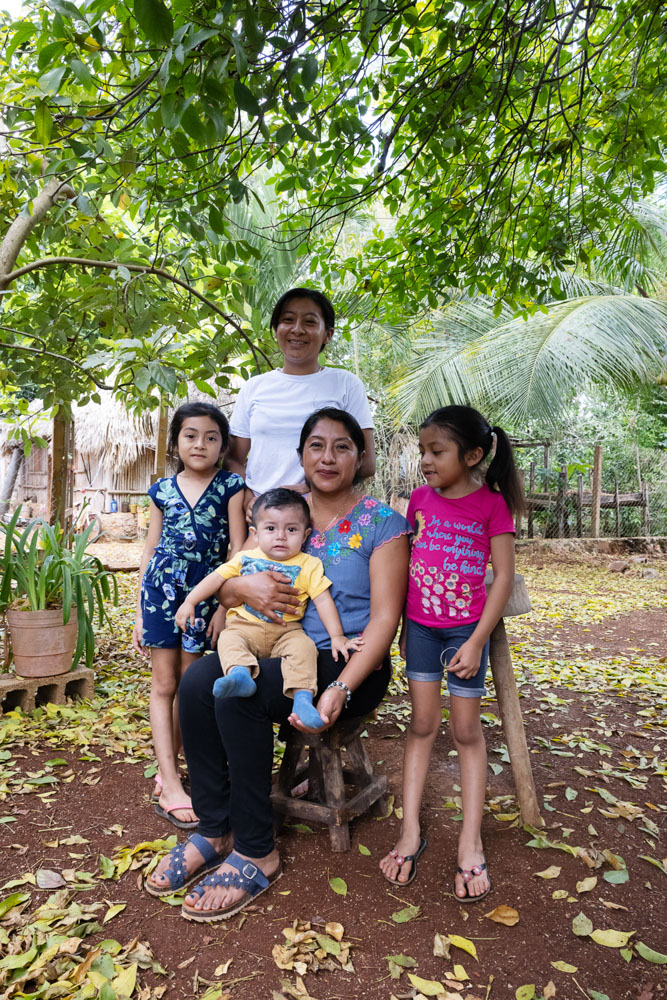
A Leader, a Chick Producer in Cambodia
By Heifer International | February 6, 2023
January 24, 2024
In October 2023, a segment of the Kikibá collective composed of 143 women entrepreneurs from 15 communities in Yucatán state, Mexico, reached a significant milestone: They sold their 500,000th egg to Toks restaurant chain in the city of Mérida. This resulted in total sales exceeding 1.5 million Mexican pesos, more than $86,500, and over 1.3 million pesos in income for the collective’s members. This accomplishment has fortified the group’s financial stability and set the stage for expanding its market reach to other buyers in the region.

Founded amid the COVID-19 pandemic in 2020, Kikibá — meaning “very, very rich” in the native Maya language — was created to elevate the local and regional marketing of cage-free eggs. Supported by the W.K. Kellogg Foundation and Heifer Mexico through the Women Entrepreneurs 2 project, the collective operates through two regional committees in Yucatán and Quintana Roo states responsible for all egg traceability, from monitoring production dates to tracking origins. Kikibá officially registered as a brand in August 2021 and by September of that same year, a deal was inked with a Mexican restaurant group, Grupo Restaurantero Gigante (GRG), to supply eggs to two of its popular Toks restaurant locations, marking the start of a profitable partnership that has attracted more women to join the initiative.
This market linkage has enabled women to generate income that improves both their own and their families’ quality of life. It has also strengthened women’s leadership roles in their communities, turning them into agents of change who can respond better to market challenges.

Thanks to the collective’s strong relationship with GRG and consistent adherence to quality standards, such as egg weight, size, color, and prompt delivery, the Kikibá collective has paved the way for growth. Their proven track record in Yucatán has sparked discussions with other potential customers in the region, including hotels in tourist areas and local governments.

As the collective looks ahead, its evolution is deeply intertwined with ongoing support of the Women Entrepreneurs 2 project. This initiative aims to empower 1,000 families in the states of Yucatán and Quintana Roo, mainly supporting Mayan women and youth.
By providing a pathway to essential resources and educational opportunities, such as access to credit, technical training, new technologies and a connection to local and formal markets, the project lays the groundwork for the collective’s continued success. With every egg sold, Kikibá collective is not just driving economic growth but also championing a legacy in which women are at the forefront of agricultural innovation, setting a precedent for generations to come.
Cart is empty
Success!
Please be patient while we send you to a confirmation page.
We are unable to process your request. Please try again, or view common solutions on our help page. You can also contact our Donor Services team at 855.9HUNGER (855.948.6437).
Covering the transaction fee helps offset processing and administrative fees that we incur through taking payments online. Covering the transaction fee for each payment helps offset processing and administrative fees that we incur through taking payments online. Covering the transaction fee for each payment helps offset processing and administrative fees that we incur through taking payments online.